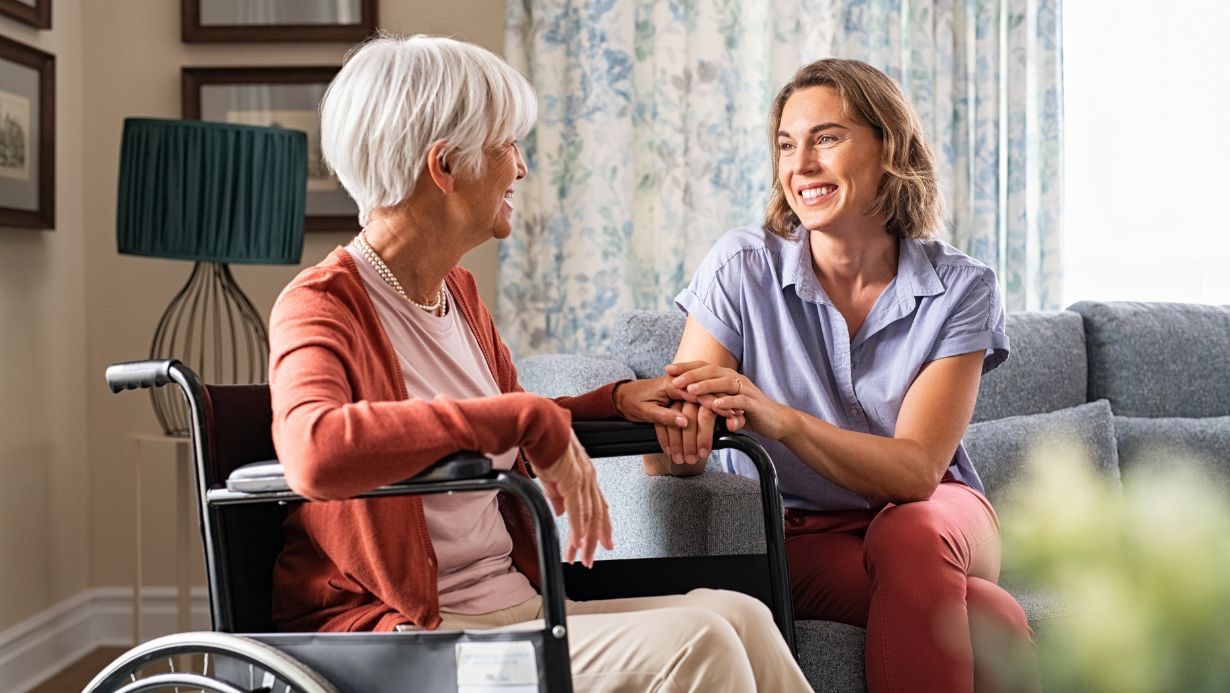Don’t Fall Victim to Caregiver Burnout
If you are the caregiver of a loved one, you may feel as if taking care of them should be your top priority. After all, they took care of you, and now it’s time to give back. It’s completely understandable. However, while caregiving can be a very rewarding experience that strengthens bonds, it can also have a negative impact on your physical and mental well-being if you don’t find a good balance between your loved ones and your own needs.
What is Caregiver Burnout?
Most caregivers experience some stress and fatigue while juggling the demands of their children, work, home, etc., along with the needs of the person they care for. However, caregiver burnout is more severe and leads to feelings of exhaustion and hopelessness. Caregiver burnout is the state of physical, mental, and emotional exhaustion that can affect you physically, psychologically, socially, and/or financially.
41.8 million Americans provide unpaid care to an adult over the age of 50, according to A Place for Mom. Studies show that caregiver burnout is all too common, with 17-35% of caregivers believing their health has declined as a result of caregiving and 40-70% of family caregivers having significant symptoms of depression.
What are the Causes of Caregiver Burnout?
Here are some common causes of caregiver burnout:
- Too Many Responsibilities
Besides caring for the person with the illness, injury, or disability, caregivers often have jobs and are responsible for children, their own homes, etc. There are only so many hours in the day, and only so much one person can do. - Unrealistic Expectations
Unrealistic expectations can come from many sources – from others, the caregiver, the person being cared for, etc. For example, the caregiver or other family members may have unrealistic expectations about how much time or resources the caregiver can devote to caring for someone. Or the caregiver may expect the person they’re caring for (who may have a progressive or terminal disease) to get better under their care. - Lack of Control
The caregiver may feel they don’t have control over their own lives or the well-being of the person they’re caring for, and not having control can cause stress. Ongoing stress can cause burnout. - Being Thrown into the Role
Sometimes, you need to jump in and become a caregiver without time to prepare or think about what is involved, the time and resources required, how long it will last, or how it will affect the rest of your life, family, job, finances, etc. - Guilt
Caregivers often feel guilty taking time to care for themselves and feel guilty if they don’t spend all their free time caring for their loved one. They may also feel guilty because they feel they’re neglecting their other responsibilities. - Seclusion
Some caregivers feel secluded and alone. They feel as if all of the responsibility of caregiving is on them, and there’s no one else who can help or who they are willing to ask. - Not Realizing You’re Experiencing Caregiver Burnout
Sometimes, it’s hard to see the forest for the trees, and burnout usually happens over time. Therefore, it’s easy to miss the signs of burnout and chalk your symptoms up to regular stress and fatigue.
What are the Symptoms of Caregiver Burnout?
The symptoms of caregiver burnout can vary from one person to the next, but here are common symptoms to look for:
- Physical or emotional exhaustion
- Loss of interest in activities you once enjoyed
- Withdrawing from friends and family
- Feeling helpless, hopeless, or overwhelmed
- High anxiety or constantly feeling sad
- Feeling frustrated, angry, or irritated with others
- Changes in appetite
- Weight loss or gain
- Changes in sleep patterns
- Inability to focus
- Getting sick more frequently
- Chronic pain or soreness
- Frequent headaches
- Increased use of drugs or alcohol
How Can You Prevent and Manage Caregiver Burnout?
As a caregiver, you must take time to care for yourself from the start and watch for the signs of caregiver burnout. Here are some tips to prevent and manage caregiver burnout:
Learn to accept and ask for help
- Be realistic
- Spend time with friends
- Keep physically active
- Eat healthy
- Practice mindfulness
- Take time off for yourself
- Try meditation or yoga
- Don’t keep your emotions bottled up
- Talk to your physician
- Join a support group
- Join an online forum
- Talk to a therapist
- Contact local resources
- Contact Comforting Home Care about respite care
How Can Comforting Home Care by Phoebe Help?
Comforting Home Care by Phoebe can help prevent and manage caregiver burnout by providing services, such as light housekeeping, personal care, medication reminders, etc., hourly or around the clock.
Call today at 610-625-5206 or connect with us online to discover how we can help alleviate some of the stress of caregiving and provide peace of mind.












